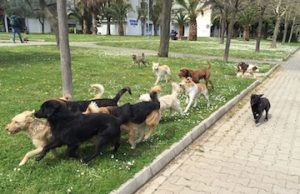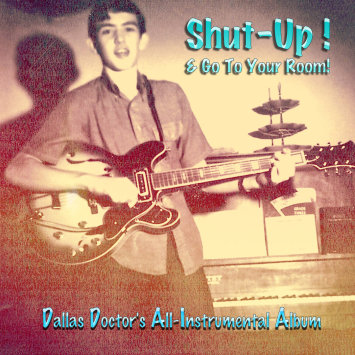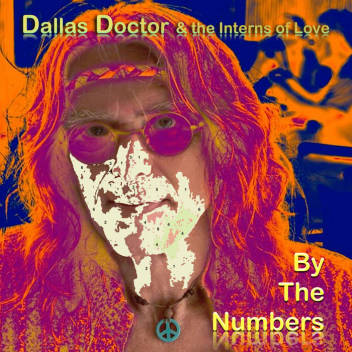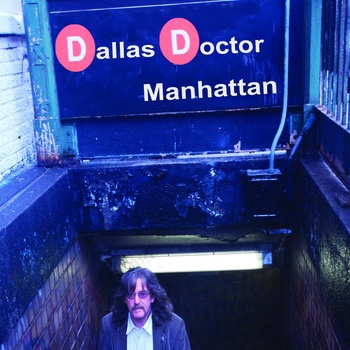Ringo’s Big Adventure
(Chapter ?)
The Day of the Pack Attack
by Dallas Doctor

A Pack of Stray Dogs
in Bar, Montenegro
It started with one dog. Not a large one, but a vocal one. His barking didn’t cause alarm, not at first anyway, because a barking dog is a rather mundane occurrence. Doc and Ringo took it as a warning and kept moving…
But the barking didn’t fade away as they walked. That was the first clue that something might be amiss. Normally, the sound of a barking dog you happen to disturb fades away as you move further from the source. But that didn’t happen this time. Doc turned around to see if he was imagining things. And there it was: one loud, off-leash, barking dog obviously objecting to strangers in the neighborhood.
Doc and Ringo continued their journey. But the dog didn’t let it go; he began following. Doc checked back a few more times and sure enough, the sound of the barking was not fading away. In fact, it was getting closer. And the incessant nature of it alerted more (also off-leash) dogs to Ringo’s presence.
Moments later, there were three more dogs following and barking — one very large, mangy-looking creature and two smaller ones. Ringo and Doc kept moving and were careful not to show any signs of aggression. But soon there were six, then eight, then a dozen, maybe more. And as the numbers increased, so did the boldness of the approach of the ringleaders. Both Doc and Ringo realized they had a situation on their hands.
Doc was able to momentarily arrest the advance of the pack by bending down and pretending to pick up a rock. But the ringleaders didn’t back off and within moments, resumed the advance. Doc and Ringo both tried to remain calm and simply walk away, but when they turned, the large, mangy ringleader made a charge at Ringo’s right rear flank. Ringo whirled around in defense. The aggressor regrouped for a mere second and then charged again. Doc shouted “NO!” as loud as he could. Ringo met the charge with a charge of his own. The two dogs made momentary contact and it looked to Doc like they merely bounced off each other. The attacker responded to Ringo’s defense by moving a few feet away, snarling, and showing his teeth. Ringo returned the stare. That’s when the original smaller dog came at Ringo from the other side. This time, Ringo tried to run away, but since he was on a leash, he could only take a few steps. He was trapped. Then the larger dog came in again. Ringo stopped trying to run. He turned and met the big dog head on again. Doc yelled “NO!” again.
When the combatants bounced off each other the second time, without calculating the consequences, Doc dropped the leash. He didn’t want to be holding Ringo back while other dogs attacked him. Doc instinctively made the decision to allow Ringo to be free to either run away or fight back, whatever Ringo thought was best in the situation.
And miraculously, that’s what saved the day, because the moment Ringo was off leash, the stray dogs became immediately more careful. MUCH more careful. They continued snarling and growling, but they ceased the actual attacks. Ringo and the big one snarled at each for another minute, but neither approached again. Eventually, the big ringleader dog relaxed enough that Ringo was able to turn and walk slowly away, trailing his free leash behind him. This time the dogs didn’t follow.
As soon as Doc thought the crisis might have passed, he reached down and recovered the leash dangling behind Ringo and tried to pretend he wasn’t shaken. Doc congratulated Ringo for doing so well in such a scary situation. And there’ve been no more incidents since that day…
… Most westerners are horrified to learn that the vast majority (75-80%) of the dogs in the world are not beloved pets, but free-ranging (an umbrella term that includes strays, feral, and street dogs). The W.H.O. reports there are 200 million stray dogs in the world, and of course, they’re concentrated more in some places than in others.
Montenegro is one of a great many countries with roving packs of strays. Doc and Ringo encounter strays often. For an American, the sight is initially horrifying, especially when a dog is suffering, limping from an injury, or obviously starving (which to be honest, is the exception, not the norm; we try to feed and get help for those). Luckily, there are good people here in Bar who do their best to look after the strays. They’re sincerely trying to improve the quality of their lives. Doc’s had several conversations with Ringo’s local vet about it. (There’s an ongoing tag-and-spay program focused on preventing pregnancy. Multiple pregnancies dramatically shorten the lives and devastate the quality of life for the females).
Doc was very surprised to learn that, compared to other cities, most of the strays in Bar are comparatively well fed and well behaved, due in large part to a German organization (Tierhilfe Montenegro) that regularly trucks in food, medicine, and volunteers. Wonderful humans spend their own time and money performing organized acts of kindness for the homeless cats and dogs here in Bar. Many of the animals even find permanent homes in Germany due to the group’s efforts.
But the packs are still with us, because, according to Ringo’s vet, many of the local people abandon pets when they become a burden or when they simply get bored with them. The strays here tend to travel in small packs of 3 to 15. They remain mostly in their own relatively small territories. They seem to navigate traffic without incidents, and they get along well with each other (they have to, to survive).
Ringo can definitely tell the difference between a pet and stray. There’s absolutely no question about that. Whenever we meet a pet, off leash or on, Ringo’s always very interested. He wants to jump run and play. He’s so boisterous sometimes, in fact, that he frightens the other dog and Doc has to pull Ringo away. But when a stray approaches, Ringo adopts an entirely different attitude: he stays calm and careful. He lets the stray approach if it’s going to — usually, they don’t; it’s rare when they approach — but if they do, Ringo’ll usually sniff just enough to make sure everybody’s cool, but only for a few seconds; he quickly moves on at the earliest opportunity.
Doc moves on too. He tells himself there’s nothing he can do to change the situation. He’s not in a position to take on even one more dog, let alone all of them. The problem’s just too big. So Doc moves on…
But Ringo will fight when he has to…
Click HERE if you’d like to learn more about the wonderful humans at Tierhilfe Montenegro. (Their website’s in German, but Google can sort’a translate it for you.)
Please feel free to share this story in any way you consider appropriate. This is part of a collection of very simple short stories called: “Ringo’s Big Adventure” which is NOT to be confused with a similarly titled, but entirely different set of more complex stories with the working title “Conversations Overheard While Traveling with Ringo” which are ONLY available to my awesome supporters who are making these adventures possible over at patreon.com/dockity … If you’d like to become part of the team and receive cool rewards in return, please visit patreon.com/dockity … Thank You! Sincerely, dockity.
↑ ↑ Back to the Table of Contents for “Ringo’s Big Adventure” ↑ ↑










Omg!! So that is what you encountered in your new neighborhood? I can imagine the adrenalin rush and fright. Ringo is a leader, not a follower as he just demonstrated. So relieved all turned out well. Yay Ringo!!!❤
It turns out that Ringo has better ideas (or instincts) on how to handle these problems than I do. So I trust him. 😉
This story made me a little sad…. My work with the Caribbean dogs left me very sensitive to this problem. I’m so glad that Ringo wasn’t hurt, and that you’ve figured out a way to coexist with the packs.
Kara, yes I understand how it would make you feel that way. We had a second (less dramatic) interaction again, just this morning (with a smaller pack). I wish I had an idea for an effective solution.